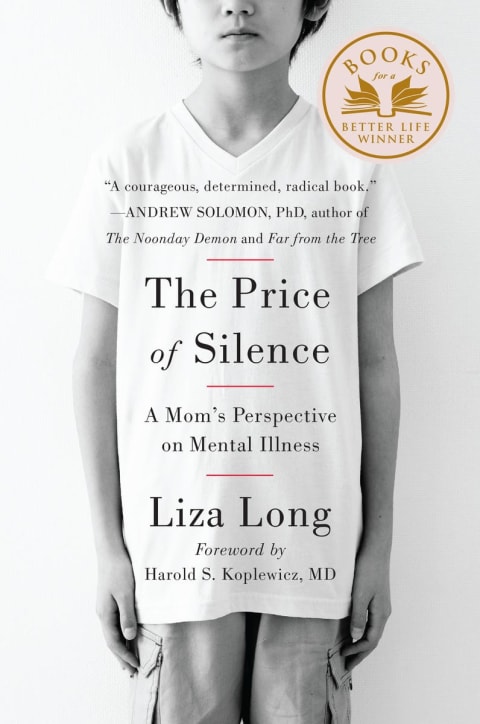Advertisement

In December 2012, after the tragic school shooting in Newtown, I thought I was the only mother in America who asked myself, “What if that’s my son someday?”
For almost 10 years, I had tried to find solutions for my then 13-year-old son’s inexplicable, explosive rages. Over the years, my son’s various diagnoses included autism spectrum disorder, oppositional defiant disorder, intermittent explosive disorder, and ADHD.
Nothing worked — not medication, not therapy, not parenting classes. And there's no worse feeling in the world than watching your child suffer and feel powerless to help.
It turns out that I was far from alone.
Ever since I shared my family’s struggle in a blog post, “I Am Adam Lanza’s Mother,” nearly three years ago, at least one parent every day has reached out to me with a similar story of trying, and failing, to get mental health care in a broken and fragmented system. I wanted answers — not only for my son, but for millions of other children and families who are also struggling.
As I researched the problem for my book, The Price of Silence, I found some answers. And over my family’s long and painful journey toward treatment and hope, here are six things I've learned:
1. Don't be afraid to speak up.
You are your child’s most powerful advocate. Too many parents of kids who have mental illness suffer in shame and silence, or are even in denial.
If your little one is very young and exhibits behaviors that seem abnormal — frequent night terrors, excessive tantrums, or sensitivity to noise, for example — talk to your pediatrician and ask for a referral to a specialist. If a medical professional tells you, “Oh, he’s just a boy,” or “She’ll grow out of it,” get another opinion.
I wish that I had been more willing to question my pediatrician when she suggested that my three-year-old son’s two- to three-hour tantrums and horrific nightmares could best be managed by getting an external lock to his door and letting him cry it out.
Though we aren’t doctors, parents know when something is wrong.
2. Find support and resources from people who understand.
Your local National Alliance on Mental Illness or National Federation of Families can be a great place to start. I volunteer with NAMI-Boise and have really appreciated all the resources and support I’ve found there. Organizations like ChildMind.org, AtWitsEnd.org, and Understood.org also connect parents with vital information.
Finally, I recommend Facebook groups for finding comfort and a safe space to share your challenges with people who understand.
3. Explore different treatment options.
While medications are an important tool in treating mental illness, they don’t work the same way for everyone — and some have serious side effects. As a parent, it's about to educate yourself about the risks and benefits for your child.
Many children who have mental illness also benefit from other therapies. Young kids might do well with Parent-Child Interaction Therapy, and Applied Behavior Analysis has been successful for some children who have autism.
My son benefits greatly from traditional psychotherapy, which helps him to manage the anxiety he feels because of his bipolar disorder, and from occupational therapy, which helps him with his sensory processing issues. And his smartphone has also been a useful tool, helping him with everything from medication adherence to stress management.
4. Work with your child’s school to get the right educational support.
Children who have mental illness, especially those who live in poverty, are too often shunted into a school-to-prison pipeline that denies them a meaningful future. In my son’s case, because he was placed on an Individualized Education Plan (IEP) for serious emotional disturbance, he was sent to a program that essentially did nothing more than warehouse students with behavioral issues, mostly male, until they turned 21. This was not an appropriate academic environment for him.
Your child has the right to a free and appropriate public education. Special education can be really baffling for parents (it certainly was for me — and I am an educator!). I recommend a consultation with a disability rights attorney or professional special education advocate who can walk you through the complicated process.
5. Take care of yourself, too.
As a caregiver of a child with mental illness, there's the emotional stress of course — but there's also the financial stress of costly therapies, as well as managing complex treatment schedules.
Take time for yourself every single day, even if it’s just a 15-minute walk or a few minutes to journal. It will make you a better caregiver for your child. I regularly practice yoga and also take time twice a month to visit with a therapist who helps me manage my stress and learn coping skills that make me a more effective caregiver.
6. Never give up hope.
When I shared my family’s story after the Newtown tragedy, I felt helpless and hopeless. But because I spoke up, my son got the help he needed.
He has not made any threats of harm to himself or others, nor has he had any explosive rages, since his last hospitalization and diagnosis of bipolar disorder in May 2013. He's now back in a mainstream school earning good grades, and he just finished writing his third novel.

It took us 10 years to find the right treatment. And our story isn't over. I don't think that anyone would say that a diagnosis of bipolar disorder is a “happy ending” for a child. But it is an answer, and it provided a path for us.
I'm glad that I spoke up for my son, and I will continue to encourage other parents to share their stories. Today, I have every hope that my son will live the happy, productive life that he — and every child — deserves.
Watch Next
Enjoy some of our favorite clips from classes
Enjoy some of our favorite clips from classes
What Is Meditation?
Mindfulness/Spirituality | Light Watkins
Box Breathing
Mindfulness/Spirituality | Gwen Dittmar
What Breathwork Can Address
Mindfulness/Spirituality | Gwen Dittmar
The 8 Limbs of Yoga - What is Asana?
Yoga | Caley Alyssa
Two Standing Postures to Open Up Tight Hips
Yoga | Caley Alyssa
How Plants Can Optimize Athletic Performance
Nutrition | Rich Roll
What to Eat Before a Workout
Nutrition | Rich Roll
How Ayurveda Helps Us Navigate Modern Life
Nutrition | Sahara Rose
Messages About Love & Relationships
Love & Relationships | Esther Perel
Love Languages
Love & Relationships | Esther Perel


















